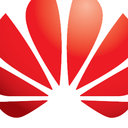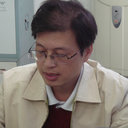Tetrahydroxystilbene Glucoside Suppresses NAPDH Oxidative Stress to Mitigate Apoptosis and Autophagy Induced by Cerebral Ischemia/Reperfusion Injury in Mice.
Mots clés
Abstrait
Tetrahydroxystilbene glucoside (TSG) is the active ingredient extracted from the traditional Chinese medicine Fallopia multiflora, which has extensive pharmacological activities. The current study aimed to observe the neuroprotective mechanism of TSG in the ischemia/reperfusion (I/R) brain injury-induced apoptosis and autophagy from the point of view of oxidative stress (OS). The middle cerebral artery occlusion (MCAO) model was prepared through the suture-occluded method, and TSG was administered through tail vein injection at the time of reperfusion at the doses of 3.0, 6.0, and 12.0 mg/kg. Compared with sham group, the neurological score in I/R mice was increased (P<0.05), along with remarkably elevated cerebral infarct volume (P<0.05); while TSG administration could reduce the neurological score and cerebral infarct volume (P<0.05) and improve the neuronal damage in ischemic cortex and hippocampus (P<0.05). The expression of NOX4, activated caspase-3(9), and Beclin 1 (P<0.05), as well as the LC3BII/I ratio, had been markedly elevated (P<0.05), while TSG administration could effectively suppress the expression of the above-mentioned proteins (P<0.05). In conclusion, TSG shows obvious protection against brain injury in I/R mice, and its mechanism may be related to suppressing the NADPH-induced OS and reducing neuronal apoptosis as well as autophagy.




